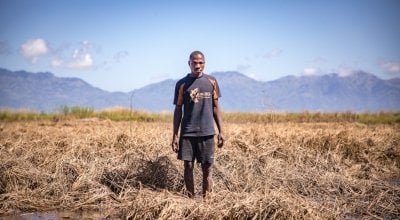
Read our 2023 annual report

Knowledge Hub
When is a potato not a potato?
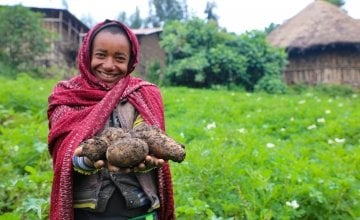
Like most of us in Ireland, Kieran McConville thought he knew a thing or two about potatoes. But during a recent trip to Malawi he discovered that he’d been tricked by a delicious, nutritious potato impostor.
A new favourite
Here on the floodplains of the Shire river, the only relief from the unrelenting sun is a rickety shelter made of sticks and thatch.
Farmer Davidson John grabs my hand and leads me through a sea of green leaves about shin-height.
Fetching a well-used hoe from the undergrowth, he digs up the biggest sweet potato I have ever seen.
It’s huge. “Kadyaubwelere,“ he says, naming the particular variety. “It’s our favourite.” Apparently it means “come back for more” in the Chichewe language. Try pronouncing that after a few glasses of Christmas cheer.
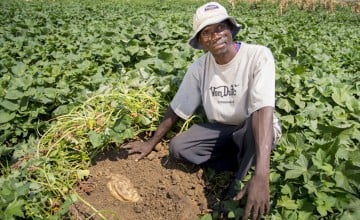
There are acres and acres of sweet potato in this part of Nsanje district, stretching toward the horizon and the border with Mozambique. But this particular section is different.
These are the orange-fleshed variety of sweet potato - and they’re sparking something of a revolution here.
Farming project
Retreating to the welcome relief of the stick shelter, I sit and talk with Davidson and some of his fellow farmers, along with Concern’s Stanley Chiyaka, who helps with translation and background.
He explains that this is one of a number of farmers’ groups that have been taking part in a project jointly run by Concern and the International Potato Center (CIP).
“CIP provide the vines and we organise and train groups of farmers who work together to grow the crop collectively,” he tells me. “Then at the end of the season they keep some of the vines for the next crop and sell the rest back to CIP.”
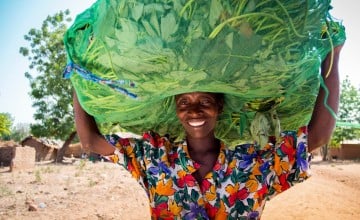
Potato impostor
But wait, what’s all this business about vines? We’re from a place where potatoes are part of our national identity, where vines are for grapes, not spuds.
But of course if I’d done my research properly I’d have realised that the sweet potato is not really a potato at all. It’s a root, not a tuber, and the bit above ground is a vine.
Davidson tells me: "We used to grow local white sweet potato, but the orange is much better. The yield is higher, the kids like it, and it’s more nutritious."
A new income stream — and new opportunities
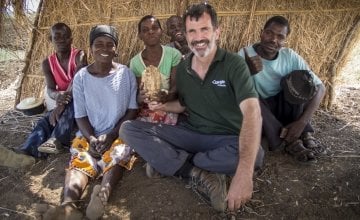
Mary Letasi, a mother of four, tells us that the growers are getting about eight thousand kwacha (about $14 US) for each 110 pound bag they sell.
“We keep some to eat and bring the rest to market,” she says.
And that money is making a difference to dozens of poor families. Mary says she is putting the extra money into her village savings and loan account, which will allow her to access credit, and towards paying school fees. Davidson is using his profits to build a bigger house for his family.
Stanley from Concern explains how the potential to expand these successes is great. CIP, who are essentially the rock stars of the international potato movement, have teamed up with Concern to help create access to bigger markets. Plans are well advanced to work with one of Malawi’s commercial snack producers, meaning a lot more small famers should be seeing the benefits of the humble sweet potato.
Something to think about – and celebrate – as you enjoy your holiday dinner with family and friends.




